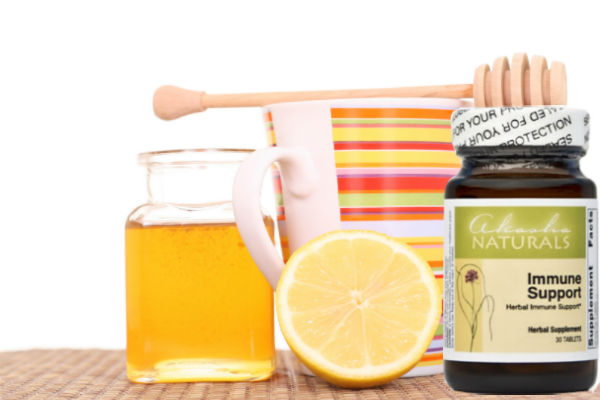In a recent video, Gina Galvez, MS, PA-C, highlights the powerful role of three “superpower” herbs—Solomon’s Seal, Horsetail, and Chuchuhuasi—for promoting recovery from injuries and supporting bone and soft tissue health. Here’s a breakdown of her insights:
Introduction
Gina’s personal experience with plant-based medicine and the impact it has had on her well-being, especially post-maternity leave. She emphasizes the importance of maintaining strong bones and flexible soft tissues (tendons, ligaments, cartilage) as we age. Aging, injuries, and conditions such as osteoporosis can weaken our musculoskeletal system, making us more prone to stiffness, fractures, and deformities. To counteract these effects, Gina recommends natural interventions with specific herbs to strengthen bones and support soft tissue repair.
Importance of Bone and Soft Tissue Health
Bones and soft tissues, such as tendons and ligaments, provide structural support and allow for movement. Injury, age, and conditions like hyperelasticity (common in Ehlers-Danlos syndrome) or hormonal changes (e.g., during pregnancy) can compromise these tissues. When injuries occur, the body naturally produces scar tissue, but this tissue lacks the flexibility of the original structure, leading to stiffness. To combat this, Gina compares our body’s needs to the care of leather: regular “oiling” with herbs can help retain elasticity, preventing stiffness and enhancing vitality.
1. Solomon’s Seal
Gina introduces Solomon’s Seal (Polygonatum sibiricum), known as the “musculoskeletal healing wizard,” as an exceptional herb for soft tissue and bone health. It is a natural demulcent, meaning it lubricates and soothes tissues. In traditional medicine, it’s valued for its ability to maintain moisture in the joints and address “dry” conditions (such as in Ayurveda’s Vata dosha or Chinese medicine’s Yin deficiency).
- Key Benefits: Solomon’s Seal not only lubricates joints but also supports the heart, lungs, and even reproductive health. It encourages nutrient delivery to muscles and connective tissues, which is crucial for injury recovery.
- Research Insights: Studies show that Solomon’s Seal has anti-inflammatory properties, reducing knee arthritis and other inflammatory responses in cartilage cells. It also promotes cartilage and bone matrix strength, making it an excellent preventative against arthritis and a supportive agent for existing injuries.
- Safety and Dosage: It’s generally safe but may cause nausea or vomiting in high doses.
2. Horsetail
Horsetail (Equisetum arvense), also known as “the vegan collagen booster,” is another remarkable herb for musculoskeletal support. The name derives from the plant’s resemblance to a horse’s tail, and it’s been used historically for joint, skin, and hair health.
- Key Benefits: Rich in silica, an essential mineral for bone and connective tissue health, horsetail enhances bone density, promotes hair and nail growth, and even supports gut health. Unlike animal-derived collagen, horsetail offers a plant-based option, suitable for vegans.
- Research Insights: Studies on animals show that horsetail can inhibit osteoclasts (cells that break down bone) while encouraging osteoblasts (cells that build bone). It also supports wound healing by promoting collagen production and has antimicrobial properties, making it valuable for diabetic patients or post-surgical recovery.
- Additional Uses: Besides musculoskeletal benefits, horsetail has applications for urinary health, acting as a diuretic and helping to tone bladder muscles, reducing incontinence and urinary infections.
3. Chuchuhuasi: The Amazonian Adaptogen
- Botanical Name: Maytenus krukovii
- Cultural Significance and Origin: Known as the “Brazilian Ginseng,” Chuchuhuasi is a tree native to the Amazon. Traditionally, it has been used for pain relief, arthritis, and joint repair. Gina Galvez recounts her personal experience with Chuchuhuasi while studying with an herbalist in Peru, noting its profound effects on stability and pain reduction.
- Pain Relief and Adaptogenic Properties: Chuchuhuasi is an adaptogen, meaning it helps the body balance stress responses and reduce inflammation. It supports adrenal health and has a strengthening effect on muscles and joints. Traditional uses also include relief for rheumatoid arthritis, fibromyalgia, and nerve-related pain.
- Immune and Nervous System Benefits: This herb’s adaptogenic nature extends to calming the nervous system, making it beneficial for conditions like Parkinson’s disease and other neurodegenerative conditions. It’s even used for menstrual regulation and uterine health, demonstrating its versatility.
- Dosage and Use: Chuchuhuasi can be taken as a daily tonic to strengthen and stabilize joints and muscles or used intermittently for acute recovery support. The herb is available in tinctures, capsules, and even topical balms.
Conclusion
Gina’s approach emphasizes a holistic view of health, promoting not only structural support for bones and tissues but also functional benefits for flexibility and injury prevention. With Solomon’s Seal and Horsetail, she presents safe, natural options that can be integrated into a daily health regimen, especially for those prone to injuries or with aging-related musculoskeletal concerns.


















